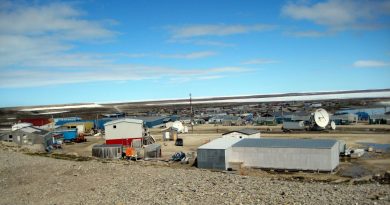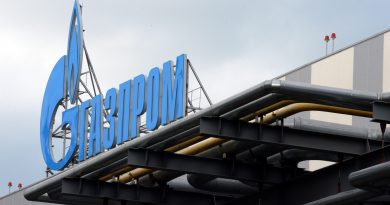Blog: And in Between, There Are Doors’—Europe, the Arctic, and shared spaces
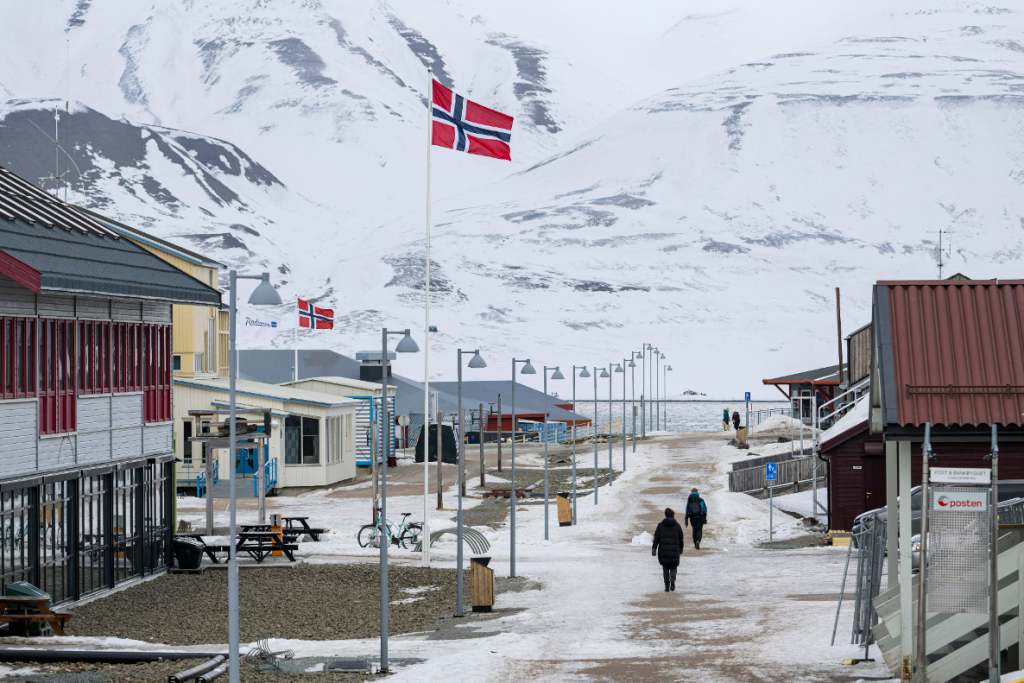
Although it has long been commonplace to refer to the Arctic as a single region, given similar geography, climate conditions, and oftentimes socio-economic challenges shared by far-northern regions, it is also not unusual to use the terms ‘European Arctic’, ‘North American Arctic’ and ‘Russian Arctic’, particularly in relation to politics and economics.
In the past month, the European Arctic has increasingly found itself in the global spotlight, as the region continues to experience various spillover effects from Russia’s February 2022 invasion of Ukraine.
Finland has now become the thirty-first member of NATO, adding significantly to the alliance’s already growing Arctic interests. Nordic neighbour Sweden also awaits membership, an outcome potentially resting on the results of a runoff election on 25 May in Türkiye (Turkey) between President Recep Tayyip Erdoğan and opposition leader Kemal Kılıçdaroğlu, with the former having blocked Sweden’s membership, and the latter, who has taken on a more pro-Western foreign policy stance, promising to support the bid.
NATO, and its future in the wake of Russian aggression, was a central talking point at this month’s Lennart Meri conference in Tallinn. The event’s theme, ‘Incipit Vita Nova – So Begins New Life’, was especially timely, as many European governments are now looking to the future of the region, politically, economically, and strategically. While the Arctic was not a main topic at the event, far northern affairs were rarely far from the conversations given ongoing concerns about Moscow’s military posture, as well as how to define a victory for Ukraine and Kyiv’s future relations with both NATO and the European Union. At the same time, the conference highlighted strengthened ties between the Baltic states and their Nordic neighbours, as both subregions were united in addressing threats from Russia.
At one of the initial panels, the three Baltic leaders discussed [video] the necessity of breaking the Russian government’s cycle of aggression, and how best to hold Russian leaders accountable. Estonian Prime Minister Kaja Kallas called for an international tribunal to address the crime of aggression, while her counterpart in Lithuania, Ingrida Šimonytė, suggested that there remains a tendency to view the invasion as strictly a regional crisis, despite the serious potential for the violence to spread further.
Related themes at the event included the future of NATO, and of the overall global security architecture, the specific challenges facing Ukraine’s defence today, as well as broader issues of American strategic cooperation with Europe, hybrid threats, and energy security. This last topic was especially appropriate given that Russian oil shipments to Europe, including via the Arctic, have sharply declined since last year, leading to debates over alternative sources, (with Norway’s supplies now being more widely sought). Yet, according to recent figures by the International Energy Agency, Russia’s overall oil exports in April this year rebounded, with China and India, along with other Asian markets, the primary buyers.
Muted transfer of leadership at Arctic Council
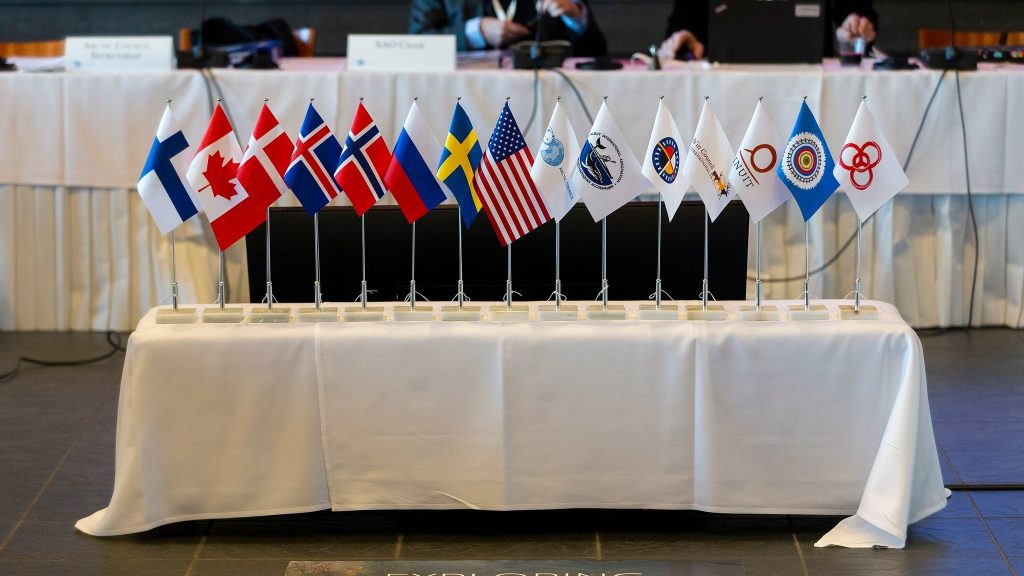
Last week also witnessed the successful, albeit muted, transfer of the chair (or in Norwegian, lederskap), of the Arctic Council from Russia to Norway. Tradition was broken as the handover was accomplished via a virtual meeting, despite invitations by Moscow to conduct the handover in the Siberian city of Salekhard. Ultimately, no foreign ministers from the ‘Arctic 7’ states attended, while the online meeting was the first Council event which has officially included Russia since February of last year, due to the ‘pause’ in the organisation’s activities. The post-meeting document [pdf] was also a conservative affair, merely a short statement stressing the need to ‘safeguard and strengthen’ the Council, and confirming Norway’s chairing status as of this month.
Norway, which will hold the chair until 2025 until it will be passed to Denmark, now has the Brobdingnagian task of finding (and maintaining) the appropriate level of engagement with the Russian government, including finding ways to invite Moscow’s participation in Council activities, especially around climate change, which require all members to engage. Two months ago, in its capacity as chair, released [pdf] its policy priorities, in which there was a substantial attempt to keep to the original mandate of the Council, namely promoting scientific, environmental and developmental endeavours and cooperation.
The announcement that the handover had been successfully completed, to everyone’s quiet relief, was made during the 2023 Dutch Polar Symposium in Den Haag. During that event there was also a focus on promoting closer scientific cooperation despite the difficult diplomatic circumstances. Discussions during one panel on the role of the Arctic Council quickly shifted to the perceived competition between politics and science in the far north, and various ways in which scientific cooperation was not only vital in combatting the alarming shifts in regional environmental conditions, but also in keeping essential communication lines open. Netherlands has been a longstanding observer in the Arctic Council, and has played many roles in developing polar research, and this meeting also underscored the role of non-Arctic states, including within Europe, in sustaining regional scientific endeavours.
‘Business as usual’ an impossibility
At the same time, the invasion of Ukraine will render ‘business as usual’ an impossibility, as the war will continue to act as Banquo’s ghost throughout future Council deliberations. As a recent report explained, under Norway’s aegis the Council could operate at a near-normal level while constantly having to navigate political obstacles, it could also quietly split as the majority of work is conducted primarily by the A7, or the Council could erode beyond its ability to function, opening the door for new regional organisations to appear, possibly involving expanded participation by non-Arctic states such as China.
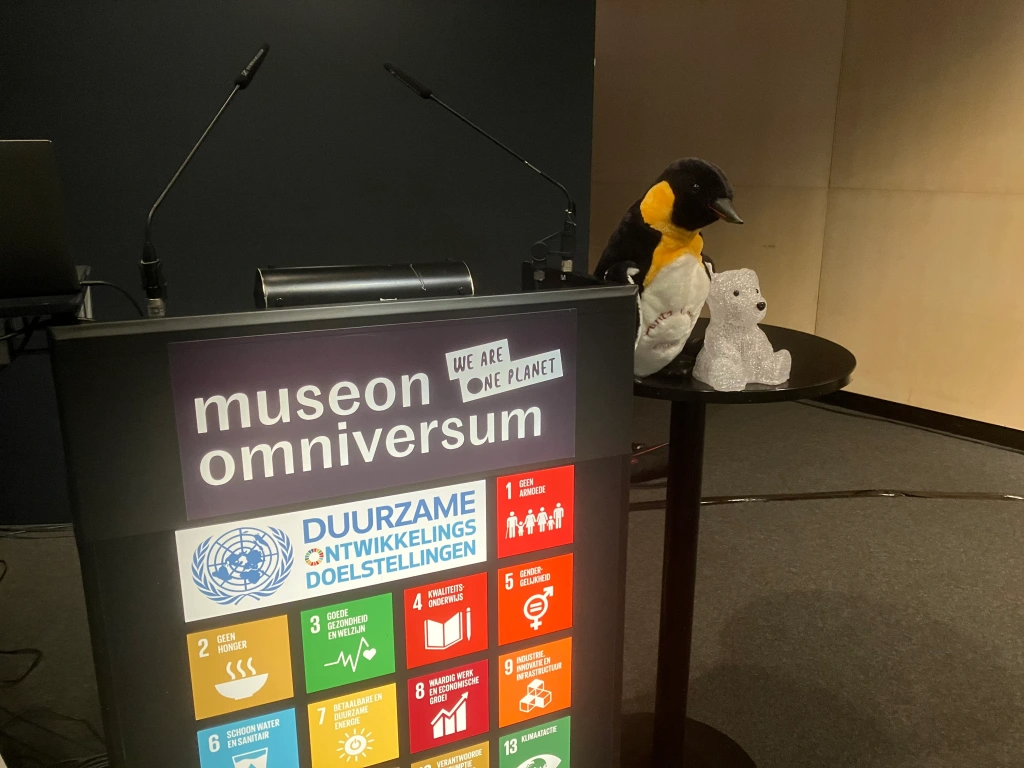
In a foreign policy document [in Russian] published by the Kremlin in March this year, while there was no mention of the Arctic Council, the paper included references to ‘neutralization’ of any actions by states which seek to limit Russian rights in its Arctic waters, and a call for greater cooperation with non-Arctic states, a likely nod to Beijing.
In April of this year, a memorandum of understanding between China and Russia, which carried much symbolic value as well as security implications, was signed in Murmansk. Under the MoU, the China Coast Guard (中国海警局) would accompany Russian security services in joint maritime operations, via the principles of ‘good-neighbourliness and win-win cooperation’ [in Chinese]. It remained unclear, however, what the specific effects of this cooperation would be in the Russian Arctic, given Moscow’s sensitivity regarding any foreign activities in its far northern waters.
Moreover, while both powers have sought to co-develop a Polar Silk Road in the Russian Arctic since 2017, in the aftermath of the global pandemic and the invasion of Ukraine, bilateral cooperation in the region has been sporadic at best. This may change, however, as Moscow appears to be making quiet plans to move beyond the Council in its Arctic policymaking, with reports that Russia may spearhead a new research station in Svalbard which would be jointly operated with fellow members of the BRICS group (Brazil, China, India and South Africa). The BRICS may be soon experiencing a renaissance of sorts as the upcoming meeting of the group in Cape Town is expected to address the interests of several governments seeking to become members as well. This would include Argentina, Egypt, Indonesia, Iran, Saudi Arabia, and the United Arab Emirates. Will this potential expansion result in an even more crowded Arctic?
Observer questions
Not surprisingly, given the current political atmosphere, one order of business which was not addressed at the abbreviated Council meeting was the question of potential new formal observers. This omission marked the second time that Arctic-adjacent state Estonia was left in the waiting room, as the country’s original bid in 2021 was also unsuccessful. Fellow Baltic state Latvia was also seeking to become an observer this year, and Ireland and the Czech Republic had previously expressed interest in joining the list, (the most recent addition to the observer roster was Switzerland in 2017).
As the addition of any new formal observers requires consensus from all eight Council members, another side-effect of the present status of the organisation could be a de facto moratorium on this subject, at least in the short term. The interaction of current observers with the Council under current conditions is also a question.
This outcome notwithstanding, however, it is unlikely that the Baltic region will lose interest in Arctic affairs, given growing ties with the Nordic states which were further strengthened in the wake of Finland’s NATO admission. During the Lennart Meri conference, there were numerous mentions of the Finnish Gulf between Estonia and Finland becoming a ‘NATO lake’, which has significantly changed the security mosaic of the Nordic-Baltic region.
The Arctic Council was expected to resume formal deliberations next month, with new Senior Arctic Officials Chairperson Morten Høglund stating that political level meetings will not be possible for the near future under current circumstances. Norwegian Foreign Minister Anniken Huitfeldt was also direct in her view that it will be difficult to manoeuvre around politics in reviving the Council, but also noted [in Norwegian] that there were cooperation challenges earlier in the organisation’s history which needed to be overcome. There was also the issue of how the Council’s Working Groups, the mainstays which oversee specific areas of scientific study such as pollution, sustainable development, and local biology, as well as monitoring and emergency preparedness, will operate under the current situation.
As a result of the war, doors between Russia and the rest of the Arctic remain closed, but more doors between Europe and the Arctic have begun to appear, and swing wide open, with much greater regularity.
Related stories from around the North:
Canada: Norway committed to keeping Arctic Council as leading forum on North says ambassador, CBC News
Denmark: Arctic security key in upcoming defence agreement: acting Danish defence minister, Eye on the Arctic
Finland: Russian cyber attacks, espionage pose growing threat to Finnish national security, Yle news
Greenland: Growing focus on Arctic puts Greenland at higher risk of cyber attacks: assessment, Eye on the Arctic
Iceland: NATO anti-submarine warfare exercise underway in North Atlantic, Eye on the Arctic
Norway: Russia-China coast guard cooperation big step, says Arctic security expert, The Independent Barents Observer
Russia: Russia’s growing dependence on China altering dynamics in Arctic, UK committee hears, Eye on the Arctic
Sweden: Russian spy ships surveying Nordic energy infrastructure, Radio Sweden
United States: U.S. nominates Alaskan as first Arctic ambassador, Eye on the Arctic

